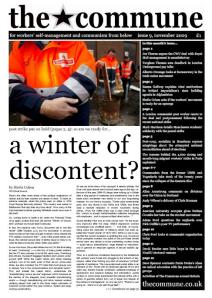“Even Communist Cuba has got with the programme that we need to cut the budget deficit and actually get spending under control. We’ve got comrade Castro on the same page as the the rest of us. We’ve just got to get the Labour Party and the trade unions on to that planet at the same time.” – David Cameron at Prime Minister’s Questions, September 15th
This week the state-run Cuban trade union confederation announced government plans to lay off 1 million public sector employees, some 20% of the working population. Half of the cuts will be over the next six months alone, in what marks a stunning retreat for the Communist Party and a sharp attack on working-class living standards. President Raúl Castro has targeted workers’ “dependency” on the public sector: by which he means, the same bureaucratic and management apparatus which closely monitors many aspects of everyday life in the country.
In this article Eduardo Semtei, a former Venezuelan government bureaucrat, describes his impressions of ordinary Cuban citizens’ lives. Although The Commune does not share Semtei’s politics – for instance, he harshly criticises the Venezuelan government for subsidising Cuba – his comments do offer an insight into existing social relations and the warped model of “socialism” on the island. Continue reading “cuba: the island of happiness ?”













